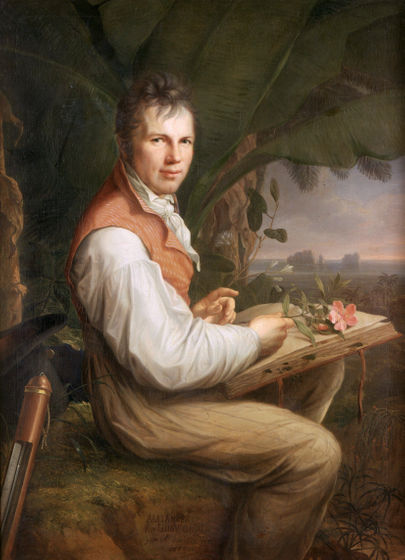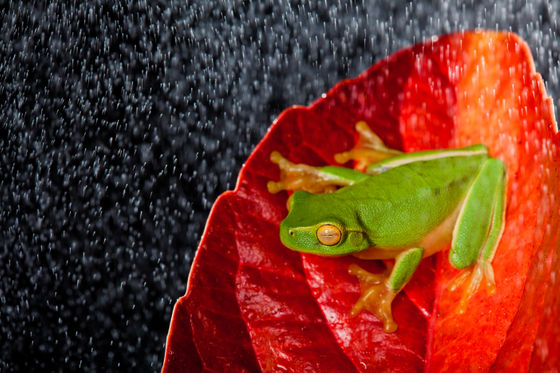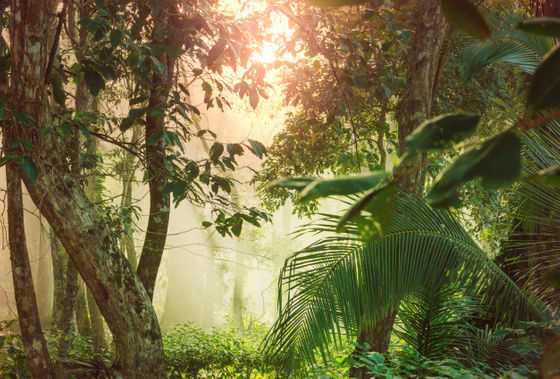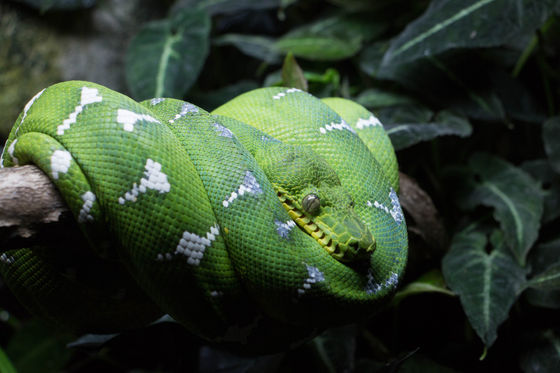Why are the tropics teeming with diverse life?

Tropical regions are full of a wide variety of life. For example, rainforests cover only 2% of the earth's surface, but are
Why is there so much biodiversity in the tropics? | Live Science
https://www.livescience.com/why-so-many-species-in-tropics
The famous German explorer Alexander von Humboldt wrote in 1807 that 'the closer we get to the tropics, the greater the variety of structures, the elegance of forms, the degree of color mixture, the youthfulness and vitality of life. It has long been known that a wide variety of organisms live in the tropics.

According to Professor Andrew Dobson of Princeton University in the United States, there are three main hypotheses that explain this phenomenon, known as the 'latitudinal gradient of biodiversity'.
◆ 1: Because energy is abundant
This hypothesis is that the long hours of sunshine and abundant solar energy in the tropics, combined with the high amount of rainfall and nutrients in the soil, encourage plant growth and support the ecosystem. From the perspective of evolutionary theory, the more active the breeding of plants, the greater the diversity of animals.
For that reason, Professor Dobson said, ``When plants become more diverse, the number of plant-eating creatures will increase, and specialists who eat specific plants and generalists who eat various plants will be born.And carnivores that eat such herbivores are also specialists and You become a generalist,” he explains.

◆ 2: Because it is not closed by ice
A second hypothesis is that the tropics are an environment that is less prone to large-scale freezing, so species could have evolved over a long period of time. Most modern organisms are species that have evolved in the last 200 million years, during which time we have experienced several ice ages.
When the Ice Age hits and the ice in the Arctic and Antarctica expands, the life that flourished in the area until then will disappear. can do.

◆3: High environmental carrying capacity
However, according to Professor David Storch, an ecologist at Prague-Charles University in the Czech Republic, while speciation is progressing in the tropics where new species are born, extinctions are also occurring frequently. This is because if many organisms compete for survival in a small area, the population of each species will become smaller and the risk of extinction will increase.
For this reason, the tropics are said to be both a cradle for species and a museum where many ancient species are preserved. This point is also supported by the second hypothesis. I'm here. Of course, not all species that have appeared in the tropics have survived yet, but the balance between speciation and extinction rates suggests that the tropics support diverse ecosystems through their carrying capacity. Professor Storch said that the idea that

The latitudinal gradient of biodiversity for which these hypotheses have been proposed is not universal, and there are exceptions. One of them is the penguin that lives in the frigid Antarctic and thrives on abundant food. There are also examples of coniferous trees spreading in cold regions, losing out to competition with broadleaf trees. In this way, Professor Storch points out that some diversity is born by being forced to adapt to cold climates rather than tropical climates.
Moreover, contrary to the rule that diversity increases closer to the tropics, some types of creatures become more diverse the further they are from the equator. It's a parasite. As mentioned above, in the tropics where many species of creatures are crowded, the number of specific species tends to decrease, so if the host becomes extinct, the parasite will also take with it.
On the other hand, in high latitude areas, although the diversity is lower than in the tropics, the number of individuals is large, so the environmental carrying capacity is high from the viewpoint of parasites. In this way, even areas with low overall biodiversity can act as 'speciation pumps' that nurture more diverse ecosystems in certain areas than in other areas, Professor Dobson said.
Related Posts:







